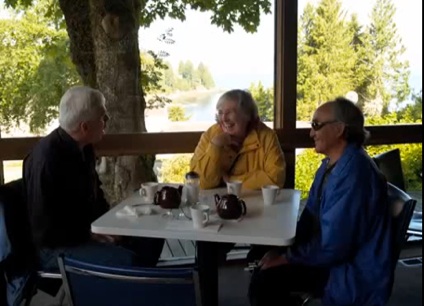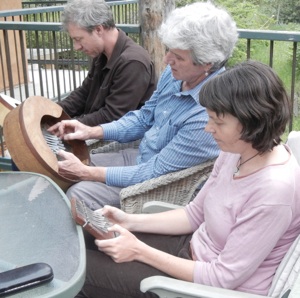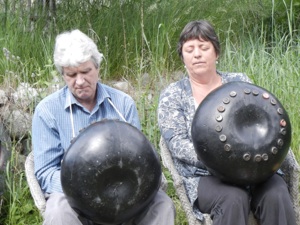beginnings of language



What we in fact propose is that languaging must have begun as a manner of living conserved generation after generation in the spontaneous learning of children more than 3 million years ago, and we think that it began among our ancestors as a simple result of their living together in small groups as gatherers who shared food in love in the intimacy of tenderness and sensuality. Moreover, we maintain that living in languaging arose not because it was necessary, or in any way advantageous, but merely as a result of this manner of living together. Certainly, we do not mean that there were not occasions of dispute or of anger and quarrel, but we claim that aggression and mistrust cannot have been the basic mood of co-existence in our ancestors. And we claim so because if that had been the case, ... living in language is could not have arisen, because there would not have been the space of intimate and stable cooperative coexistence that makes such a living possible.
Origin of Humanness in the Biology of Love, page. 62
origin of language in early humans
You will recall from our discussions about human origins that several happenings came together such that we began to follow a particular path that eventually could be seen as the lineage of human evolution.
This constellation of circumstances enabled the development of extended coordination (or what we commonly name as “communication”) among the group members. And even as the emotions of trust and nearness in love were conserved from generation to generation, so also with language. Children grew in whatever language was already operational, and each generation could thus begin with what was already present, and add to it, incrementally. Indeed, it was likely often the children, in their play, who added something new, even as today the new “slang” word often come from our children and youth before they become accepted as “normal vocabulary”
consensual coordination
When you go for a walk with a friend, you may say “lets go to to the beach” and you agree on that, in language. However, once you’re there, its very unlikely you discuss just how fast you will walk, or who is to “lead”. Further when one of you stops to look at something the other is likely to also pause and take a look, without you saying or gesturing; you just move together, naturally. We move with each other, and we play with each other, in the pleasure of doing things together in an ease of consensual coordination.
“Consensual” does not mean giving consent. It is sensing together; the “con” root meaning is “with” or “together. ” One does not need language to act in consensuality. We observe the coordinated behaviour of fish in a school, or a flock of birds, and in an obsession of control and purpose as fundamental motivations, people look for “leadership” or for “advantage to survival”, ie. a purpose. We can of course invent a purpose, and we can, in language plan actions towards achieving a result, for a purpose, but that is not the only way we act. The birds who are flying in a coordinated manner are not concerned with this notion. They do what they do, perhaps in pleasure, and I think at least in a sense of wellness or rightness.

spontaneous and spontaneous
Language was no more needed by the early humans than any other attribute we now have as modern humans. We propose that early humans lived together the way they did as a matter of preference; a way of being that just felt right and good at the time without any need to evaluate it, or be concerned with where it was going. In this being together language arose spontaneously, was conserved spontaneously, and was extended spontaneously as the circumstances for that arose.
Humans conserved a manner of living with each other in which this all happened without intent, nor could they have imagined all the consequences. Note that in such openness, there is no limit to what may emerge, yet what does emerge remains consistent with the emotion in which it arises. The character of the action is in the emotion ... pass the salt, please!

in the beginning



